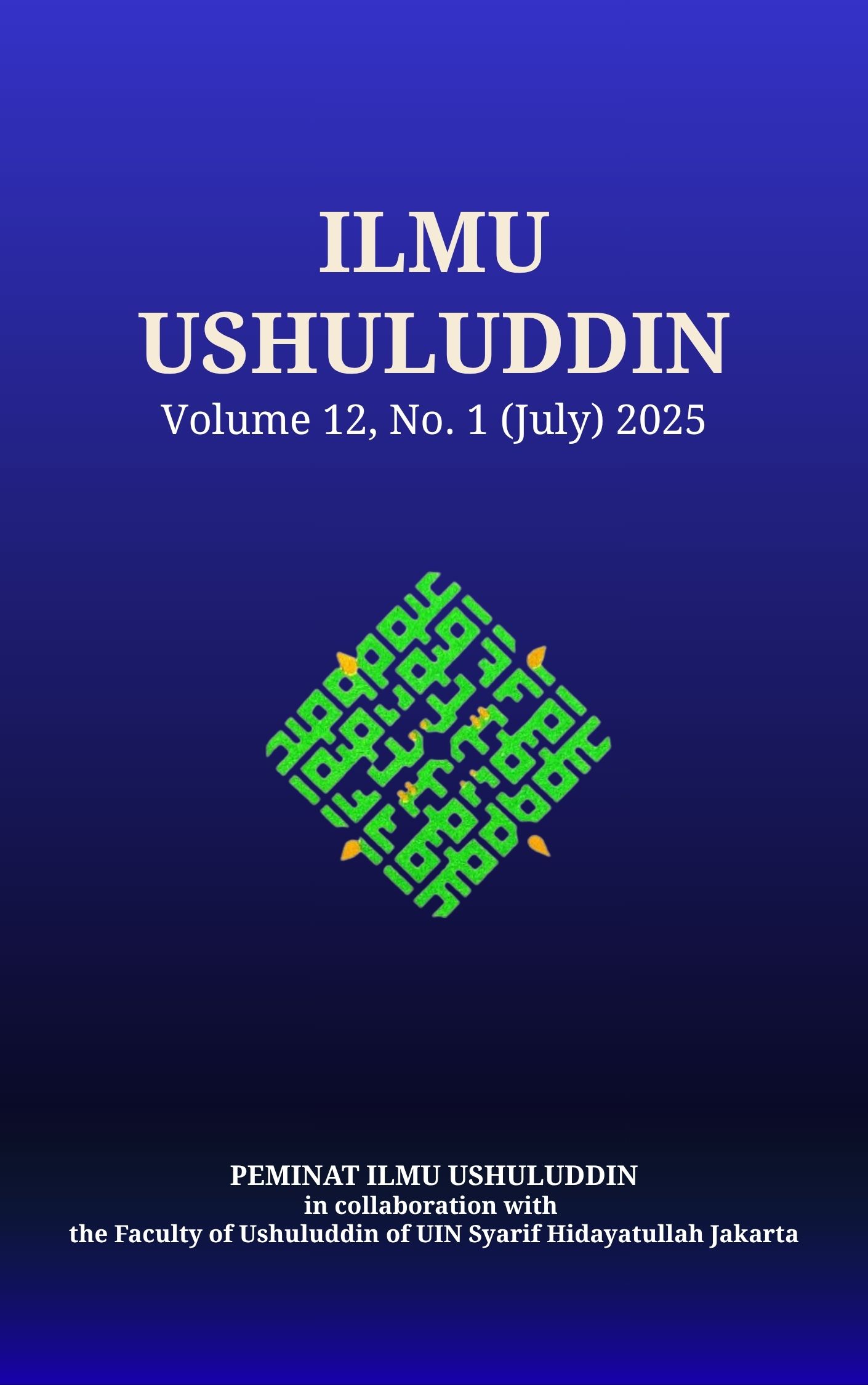| ACCREDITATION CERTIFICATE |
Certificate 2020-2025
Ilmu Ushuluddin is a peer-reviewed academic journal dedicated to advancing critical and innovative scholarship in the field of Islamic theology. It explores the evolving discourse of Islamic knowledge, practice, and authority across historical periods and contemporary contexts. The journal invites contributions that engage substantively with Islam as an intellectual, ethical, and lived tradition. While rooted in classical disciplines—such as Quranic exegesis (tafsīr), Hadith studies, theology (kalām), philosophy, and Sufism (taṣawwuf)—the journal encourages new approaches that investigate texts and practices through modern critical perspectives, including but not limited to:

This issue, Volume 12 No. 1 (July) 2025 is still in progress. Once all articles are finished, it will be officially launched on 31 October 2025 or before.
This issue presents a collection of recent studies that interweave the discourse of ʿIlm al-Uṣūl al-Dīn with the challenges of social, cultural, and technological change. It begins with an exploration of the transformation of the Kaili tribe’s rituals after Islamization that revealing the dynamics between local customs and Islamic values, followed by an inquiry into the pre-Adam cosmology in Al-Mīzān by ʿAllāmah Ṭabāṭabā’ī, and concludes with a study on Islamic thought and its relevance to technology and human resource management. Each article is interconnected by a common thread: how classical uṣūl al-dīn traditions, such as Qur’anic exegesis, theology, and Islamic philosophy, continue to be revitalized and reflected upon within contemporary contexts involving culture, technology, and social transformation. Thus, this edition not only offers textual and historical analyses but also emphasizes how the discipline of uṣūl al-dīn remains relevant today: how Islamic values integrate into local cultural practices, how classical philosophical thought engages with modern cosmological questions, and how Islamic scholarship responds to technological revolutions in the fields of management and human resources. This issue reaffirms that the study of uṣūl al-dīn does not end with texts or history. It continues to evolve as a dynamic medium for cross-disciplinary understanding responsive to the transformations of our time.
| Journal Title | Ilmu Ushuluddin |
| Article Language | English |
| ISSN | 2502-7530 (online); 2087-8265 (print) |
| DOI Journal | 10.15408/tjems |
| Publication Frequency | 2 issues per year (July and December) |
| Management Style | Open Access |
| National Accreditation | The 2nd Grade on SINTA: Science and Technology Index (SINTA 2) |
| Citation Analysis | Google Scholar |
| Indexing | SINTA; GARUDA; MORAREF; more |
| Archiving | PKP-PLN – see LOCKSS Publisher Manifest |
| Subject Areas | Art and Humanities (Religious Studies) |
| Review Time | Eight Weeks Approximately |
| Article Publication Charge | Yes |
| Copyright | CC-BY |
| Editor in Chief | Media Zainul Bahri |
| Publisher | Peminat Ilmu Ushuluddin in collaboration with Faculty of Ushuluddin UIN Syarif Hidayatullah Jakarta, Indonesia |
| Contact e-mail | jiu.fu@apps.uinjkt.ac.id |
The ILMU USHULUDDIN journal are currently undergoing a system migration to OJS 3. Old archives can be accessed via: https://journal2.uinjkt.ac.id/index.php/ilmu-ushuluddin
We apologize for the inconvenience and thank you for your understanding.
PUBLISHER
PEMINAT ILMU USHULUDDIN
in collaboration with the Faculty of Ushuluddin of UIN Syarif Hidayatullah Jakarta
Gedung Fakultas Ushuluddin UIN Syarif Hidayatullah Jakarta, | Jl. Ir. H. Juanda No. 95 Ciputat 15412, Indonesia | Phone: (62-21) 7463977 | Fax: (62-21) 7493577
Email: jiu.fu@apps.uinjkt.ac.id
This work is licensed under a Creative Commons Attribution 4.0 International License